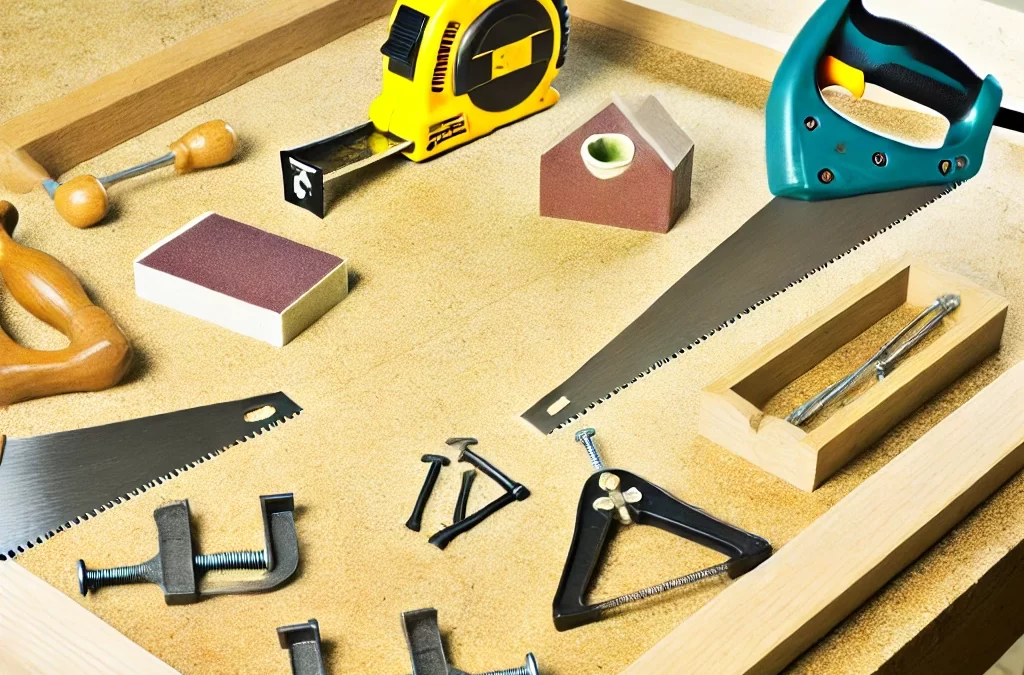Introduction
Welcome to DIYnotebook.com! Woodworking is a timeless craft that combines creativity, skill, and precision. Whether you’re looking to build furniture, create decorative items, or simply enjoy a new hobby, this guide will help you get started on your woodworking journey. We’ll cover essential tools, fundamental techniques, and beginner-friendly projects to help you build a strong foundation.
Essential Tools for Beginners
Getting started with woodworking doesn’t require a huge investment in tools. Here are the must-have tools for any beginner:
- Tape Measure: Accurate measurements are crucial in woodworking.
- Square: Ensures your cuts and joints are perfectly aligned.
- Handsaw: A basic tool for making straight cuts.
- Jigsaw: Great for cutting curves and intricate shapes.
- Sandpaper and Sanding Block: Essential for smoothing surfaces.
- Clamps: Hold pieces together while the glue dries.
- Wood Glue: Bonds pieces of wood securely.
- Hammer and Nails: Basic tools for joining wood pieces.
- Workbench: Provides a stable workspace for your projects.
Fundamental Techniques
Before diving into projects, it’s important to learn and practice some basic woodworking techniques:
- Measuring and Marking: Always measure twice and cut once to ensure accuracy.
- Cutting: Practice making straight and curved cuts with a handsaw and jigsaw.
- Sanding: Smooth your wood pieces to prepare them for finishing.
- Joining: Learn different methods of joining wood, such as using nails, screws, and wood glue.
Beginner-Friendly Projects
Start with simple projects to build your confidence and skills. Here are a few ideas:
- Birdhouse: A classic project that involves basic cutting and joining techniques.
- Bookshelf: Practice your measuring, cutting, and assembling skills.
- Picture Frame: A great way to practice precision and detail work.
- Small Table: Combine different techniques to create a functional piece of furniture.
Safety Tips
Safety should always be your top priority. Here are some key safety tips to keep in mind:
- Wear Safety Gear: Always wear safety glasses, ear protection, and a dust mask.
- Keep Your Workspace Clean: A tidy workspace reduces the risk of accidents.
- Use Tools Correctly: Follow the manufacturer’s instructions for each tool.
- Stay Focused: Avoid distractions and take your time to ensure safe and accurate work.
Conclusion
Woodworking is a rewarding and fulfilling hobby that allows you to create beautiful and functional items. By starting with the basics and gradually building your skills, you’ll be able to tackle more complex projects with confidence. Remember, practice makes perfect, so keep experimenting and learning.
Stay tuned to DIYnotebook.com for more tips, tutorials, and project ideas. If you have any questions or want to share your projects, feel free to contact us!
Happy woodworking!
